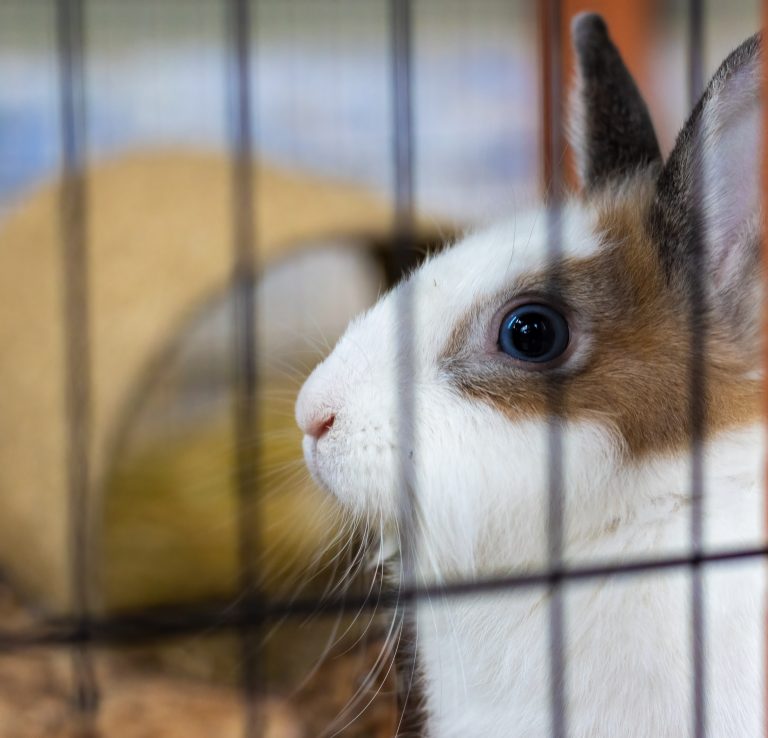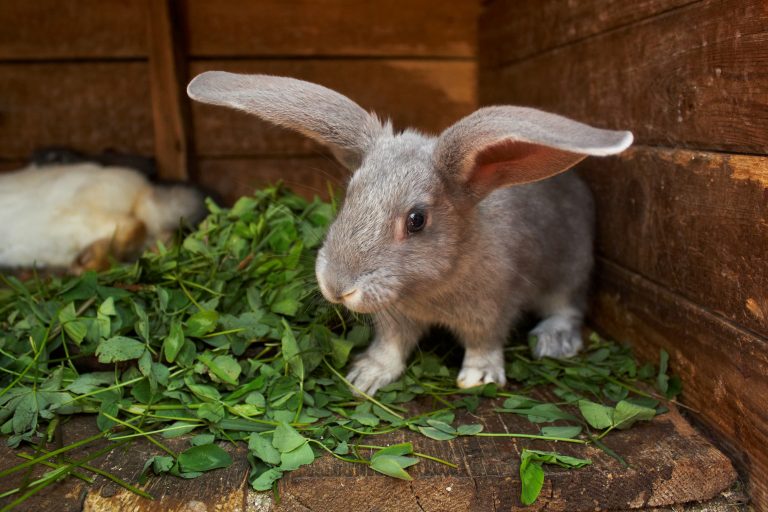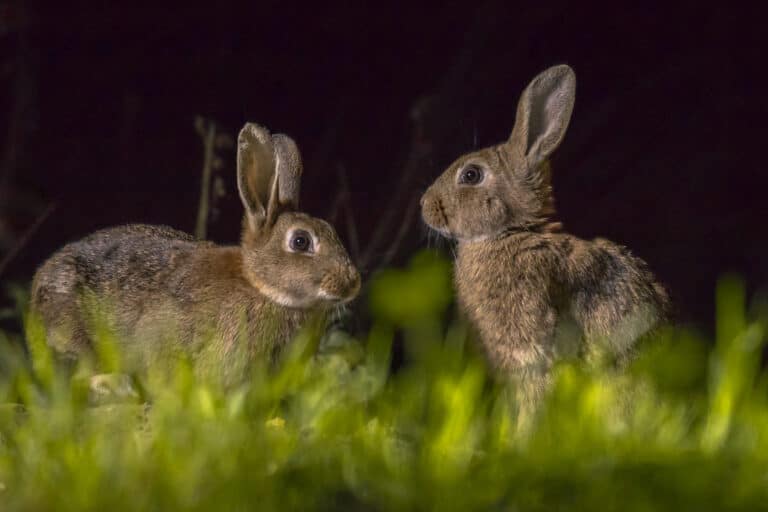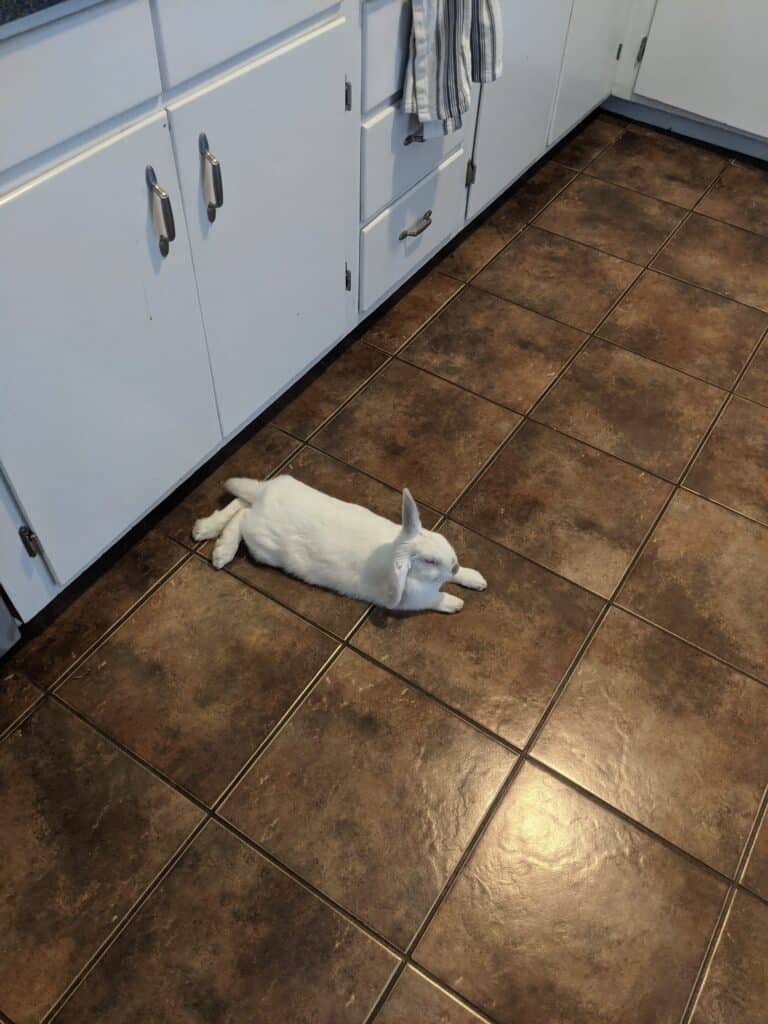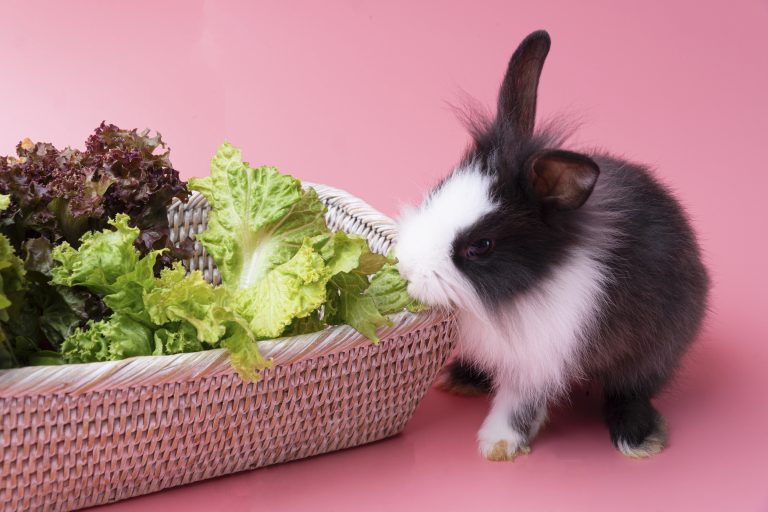Are Rabbits Herbivores?

You may have seen your bun eat something that can’t be classified as rabbit food, like, say, a strip of crunchy bacon or a piece of hotdog. So you wonder, what gives? Are rabbits herbivores, or are they actually omnivores? Can they live mainly on plant-based food material, or should you supplement their meals with some meat? It’s essential to know for sure because giving the wrong food to your pet can impact his health.
Let’s find out!
What Are Herbivores?
Herbivores are animals that feed only on plants and plant-based food materials, such as grasses, vegetables, leaves, fruits, roots, and bulbs. Their digestive system is equipped to process and digest only these foods. Rabbits fall under this classification. This means they rely only on plants for their sustenance.
However, because rabbits love to eat, they won’t say no to a meat-based treat like a yummy strip of bacon. Well, don’t panic if you catch your bun munching on one. It won’t kill him on the spot. But try to avoid a repeat performance, as meat shouldn’t be on the list of foods rabbits should eat.

Are Rabbits Herbivores?
An animal’s anatomy is often designed to give it the best chance for survival in the wild. Years of living in a particular environment and the species’ status on the food chain also help shape and fine-tune its body structure to fit its needs.
These are why rabbits are herbivores and shouldn’t eat anything aside from plants and plant-based products.
The Design of Their Digestive System
Your bun’s digestive system is physically adapted to process plant-based food material, like in this list of veggies. The enzymes in his stomach and the bacteria in his gut can only break down cellulose in plant fibers. Moreover, their larger and longer vermiform appendix (the worm-like extension of the cecum) aids in the digestion of tough plant material, such as the bark of a tree.
The Anatomy of Their Teeth
The incisors and cheek teeth of rabbits are called radicular hypsodont teeth. These pearly whites have a high crown and open-ended roots, making them ever-growing. As a result, they need to be worn down. Otherwise, they get too long and could lead to dental and other health issues. The abrasion caused by chomping down on fibrous food keeps the growth of a bun’s teeth in check.
Their Role in Nature
Rabbits are prey animals. This means they don’t hunt but instead are the ones being sought after by predators. To evade these predators, rabbits should be fast and agile, able to dart away at a moment’s notice. The low-protein plant-based diet keeps a rabbit trim and slim, helping it quickly escape hunting animals.
What Should They Eat?
There are plenty of plant-based foods, and some are better for rabbits than others. For example, those who don’t know rabbits well think that buns and carrots go well together, which is not actually the case. Carrots are great as treats but not as a regular feature of a rabbit’s meals.
Here’s what your bun should be eating.
Hay
This staple for rabbits should form around 75 to 80 percent of your pet’s diet. A high-fiber plant material, hay provides enough roughage to promote a rabbit’s digestive health and grind down his teeth that never stops growing.
Provide your fur baby with a continuous supply of hay, preferably Timothy Hay, which is the best type for buns. You can also feed him orchard, brome, or oat hay for variety. But you can stick with Timothy Hay if he loves it.
Alfalfa Hay is high in protein and calcium, making it more suitable for baby buns (less than 7 months old) who needs larger portions of these nutrients. Don’t feed your adult bun Alfalfa Hay daily, as this could lead to obesity and possible development of kidney stones.
Veggies
Buns over 3 months old can start eating veggies, which provide additional vitamins and fiber. Introduce the veggies slowly and one at a time while watching for potential allergies. When offering leafy greens, choose the darker ones, which are healthier for your fur baby.
Some veggies your rabbit may enjoy are Romain lettuce, carrot tops, spinach, broccoli, and mustard greens.
Fruits
Fruits add variety to your bun’s meals. However, consider these as treats and offer them sparingly. The high sugar content of most fruits isn’t good for rabbits and can lead to a host of health issues. Also, beware of fruits that contain seeds or pits, such as apples and pears. Be sure to remove the pits and seeds as they have small amounts of cyanide which is toxic to rabbits. Like veggies, offer each fruit one at a time and give only a tiny amount.
Grapes, oranges, pineapples, and watermelons are rabbit-safe fruits you can offer your pet.
Pellets
The amount of pellets rabbits need varies with age. Young buns need pellets because this food contains concentrated nutrients essential for developing bunnies. But as rabbits mature, they’ll require fewer pellets.
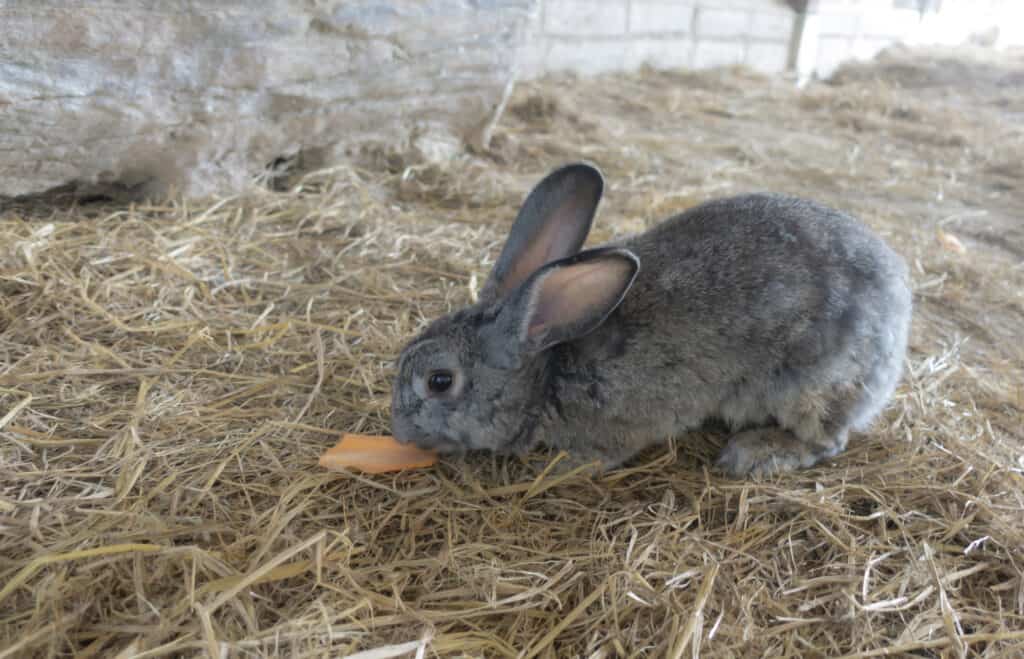
Health Issues Due to Improper Diet
Rabbits have sensitive digestions. They have very specific dietary needs, and feeding them the wrong type of food poses risks to their health. Some common health issues that may arise from eating the wrong foods are the following.
Gastrointestinal (GI) Issues
A diet that contains too much protein or carbohydrates can cause loose stools in rabbits. Eating the wrong food can also alter the microflora in the gut. This can lead to GI stasis, a potentially fatal disease.
Dental Problems
We mentioned that rabbits’ teeth grow continuously and need to be worn down by gnawing on fibrous plant materials. Lack of fiber in their diet may result in overgrown teeth. The overly long teeth could also develop sharp edges that can cut a bun’s cheek or tongue.
Pain caused by overly long pearly whites can cause a rabbit to stop eating, which isn’t good, as buns can’t go too long without food.
Without a doubt, rabbits are herbivores. They may sneak in a bite of meaty treats, but that doesn’t mean they’re equipped to digest those types of food. To keep your fur baby in good health, feed him only plant-based food and make sure he gets what he needs in the right amounts.
More About Diet
- Is Orchard Hay Good for Rabbits?
- The Best Lettuce for Rabbits: What Type Can They Eat
- Complete Guide to the Best Hay For Rabbits: Reviews & More
- What Can You Feed Wild Rabbits: A Comprehensive Guide
- Can Rabbits Have Cabbage? What You Need to Know!
We hope you enjoyed this post! If you did, will you give it a share or two 🙂 Thank you! ~from Every Bunny Welcome


